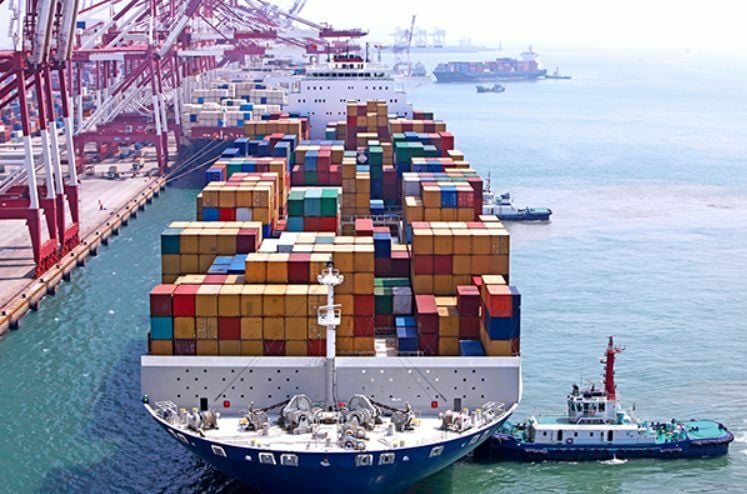Thai export growth set to miss target amid global challenges

The anticipated growth in Thai exports this year is poised to fall short of expectations due to a mix of external and internal hurdles, as outlined by a recent assessment from a private sector panel.
During its recent meeting, the Joint Standing Committee on Commerce, Industry and Banking (JSCCIB) upheld its projection for export growth in 2024, estimating it to range between 0.5% and 1.5%.
Chairman of the Federation of Thai Industries (FTI), Kriengkrai Thiennukul, emphasised that this forecast is contingent upon monthly exports amounting to US$24 billion (1.2 trillion baht) at the lower end.
However, data from January to April revealed an average monthly export value of US$23.3 billion, falling short of the target, said Kriengthai.
“If Thai exports reach the minimum value of US$24 billion per month for the remaining eight months of the year, we will achieve a growth rate of 0.5% this year.”
A combination of factors including the US-China trade tensions, geopolitical instabilities, and a global economic slowdown has led to escalated freight costs, with no immediate signs of abating.
Concurrently, Thailand’s structural challenges have eroded its competitiveness and growth outlook.
Trailing behind neighbours
Thailand’s export performance from January to April amounted to US$94 billion, trailing behind its regional counterparts such as Vietnam at US$123 billion and Malaysia at US$100 billion.
Moreover, in 2023, foreign direct investment in Thailand amounted to US$29.7 billion, significantly lower than Vietnam’s US$82.5 billion, but placed slightly above Indonesia’s US$21.7 billion.
Kriengkrai emphasised the critical need for structural reforms, particularly within the manufacturing sector, which has witnessed the closure of approximately 1,600-1,700 factories since the beginning of the year.
The FTI is focused on revamping the manufacturing sector by fostering new industries and products to align with global demands.
The panel maintained its earlier projections for Thai GDP growth in 2024 at 2.2% to 2.7% and an inflation rate of 0.5% to 1%, albeit with a commitment to ongoing monthly economic monitoring and necessary adjustments.
In a separate observation, the Chairman of the Thai Bankers’ Association, Payong Srivanich acknowledged the banking sector’s challenges in grappling with deteriorating asset quality amidst an uneven economic recovery.
Lending troubles persist
Growth rates for loans under special mention and non-performing loans have surpassed the overall loan growth rate, indicating heightened risks.
The vulnerability of borrowers, particularly within susceptible segments, has increased alongside the fragile economic climate, leading banks to tighten lending criteria, especially in the context of Thailand’s substantial informal economy, accounting for approximately 48%-50% of the GDP.
This informal sector, primarily comprising SMEs, poses challenges for banks in accurately assessing risk profiles due to limited information.
To address this, the JSCCIB proposed governmental measures aimed at integrating SMEs into the formal economic framework. Suggestions include a corporate tax waiver for SMEs over five to seven years to facilitate their transition into the formal economic system, reported Bangkok Post.
Latest Thailand News
Follow The Thaiger on Google News:


























